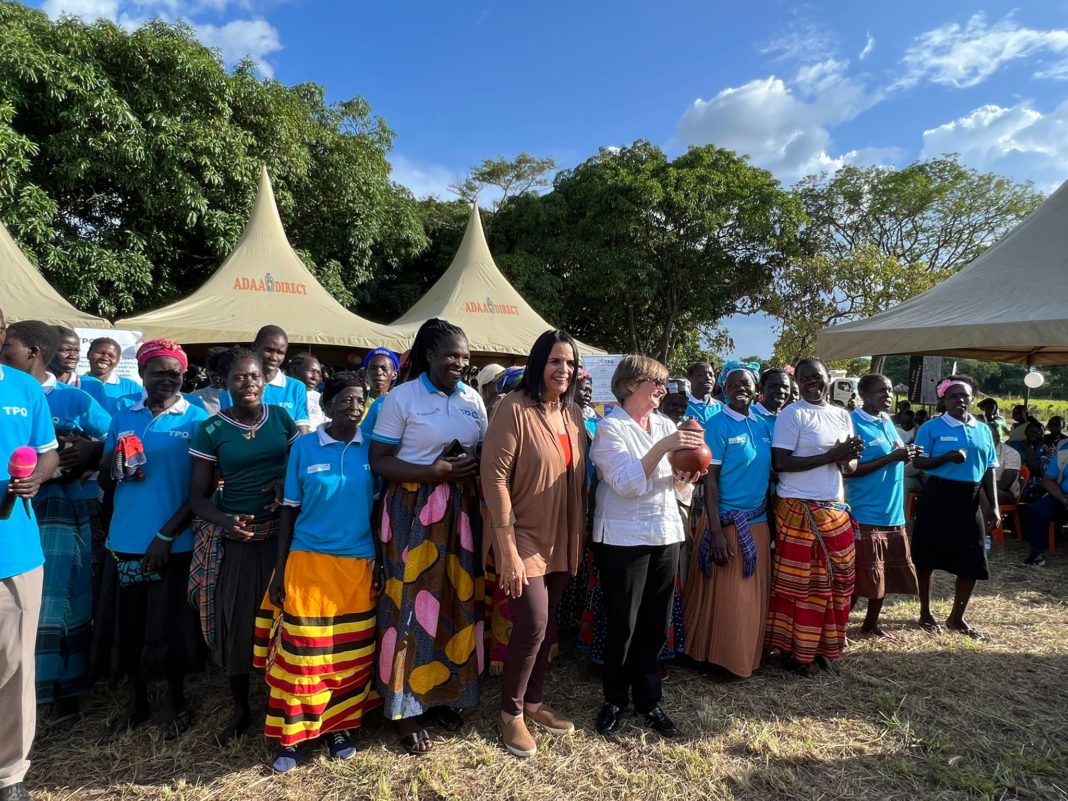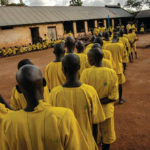The Embassy of Ireland to the Kingdom of the Netherlands and the Trust Fund for Victims (TFV) at the International Criminal Court (ICC) have visited northern Uganda to witness first-hand the transformative work focusing on the lasting impact of the conflict and the individuals and communities affected by the many atrocities committed.
Delegates on the visit hoped to gain insight into reparation implementation programmes and hear directly about victims’ experiences of court-ordered reparation programmes in the Lubanga and the Katanga case in the Democratic Republic of the Congo.
Norbert Mao, Minister of Justice and Constitutional Affairs of Uganda said, “Although the guns have gone silent, the wounds are still deep.”
“We highly appreciate this important monitoring visit with so many delegates and we are certain that they will bring back great impressions of Uganda after their personal interactions with the victims of the LRA. It has become apparent that mental health is very important to be addressed. We have to ensure that psychosomatic services among others are continued as some victims will require this assistance to lead a normal life. The work of the Trust Fund for Victims is of utmost importance to the thousands of victims in northern Uganda and we hope that the assistance will be prolonged. Without the assistance of the Government of Ireland, this visit would have not been possible, and we shall welcome you again, any time,” he said.
The Chair of the TFV Board of Directors, Minou Tavarez Mirabal, said, “Medical treatment, trauma counselling and livelihood support are life-changing services that afford recognition and a form of justice to victims of Rome Statute crimes and redress for the harm they have suffered. The TFV calls for collective efforts to restore hope, transforming lives and achieving long-term reparative justice for victims,” she added.
Speaking on Ireland’s hopes for the visit and support of the TFV’s work, H.E. Ambassador Brendan Rogers of Ireland to the Netherlands said: “This visit is the bridge between The Hague and the field. Delegates are now better informed and have seen with their own eyes the impact of the work of the TFV on the ground. We now have a family of supporters of the Fund that can take that support back to The Hague and beyond.”
Participating delegates came to better understand the deeply rooted harm persisting in northern Uganda sixteen years after the LRA conflict and the need to redress this harm. Beneficiaries of the programme called upon the delegates to provide reparative measures more broadly to the victims, their children and communities. Delegates committed to advocating for increased international awareness and support in order to allow the TFV to continue its programmes in northern Uganda, complementing the efforts of the Government of Uganda.
Recalling the commitment to victims and affected communities of atrocity crimes, President of the Assembly of States Parties, Silvia Fernandez de Gurmendi, called on States Parties of the Rome Statute to step up providing support to victims. “States Parties should cooperate with the ICC in order to ensure perpetrators of crimes are brought to justice, and the rights and needs of victim-survivors are addressed. During my mandate, I will do my utmost to promote the important work of the Trust Fund for victims.”
Fourteen States participated in the monitoring visit this year, including the President of the Assembly of the States Parties, and representatives from the governments of Australia, Belgium, Chile, Estonia, Germany, Ireland, Liechtenstein, Netherlands, New Zealand, Switzerland, Tanzania, Uganda, United States, and the European Union. Also, Legal Representatives of Victims in the Ongwen case and civil society organisations participated in the visit.








